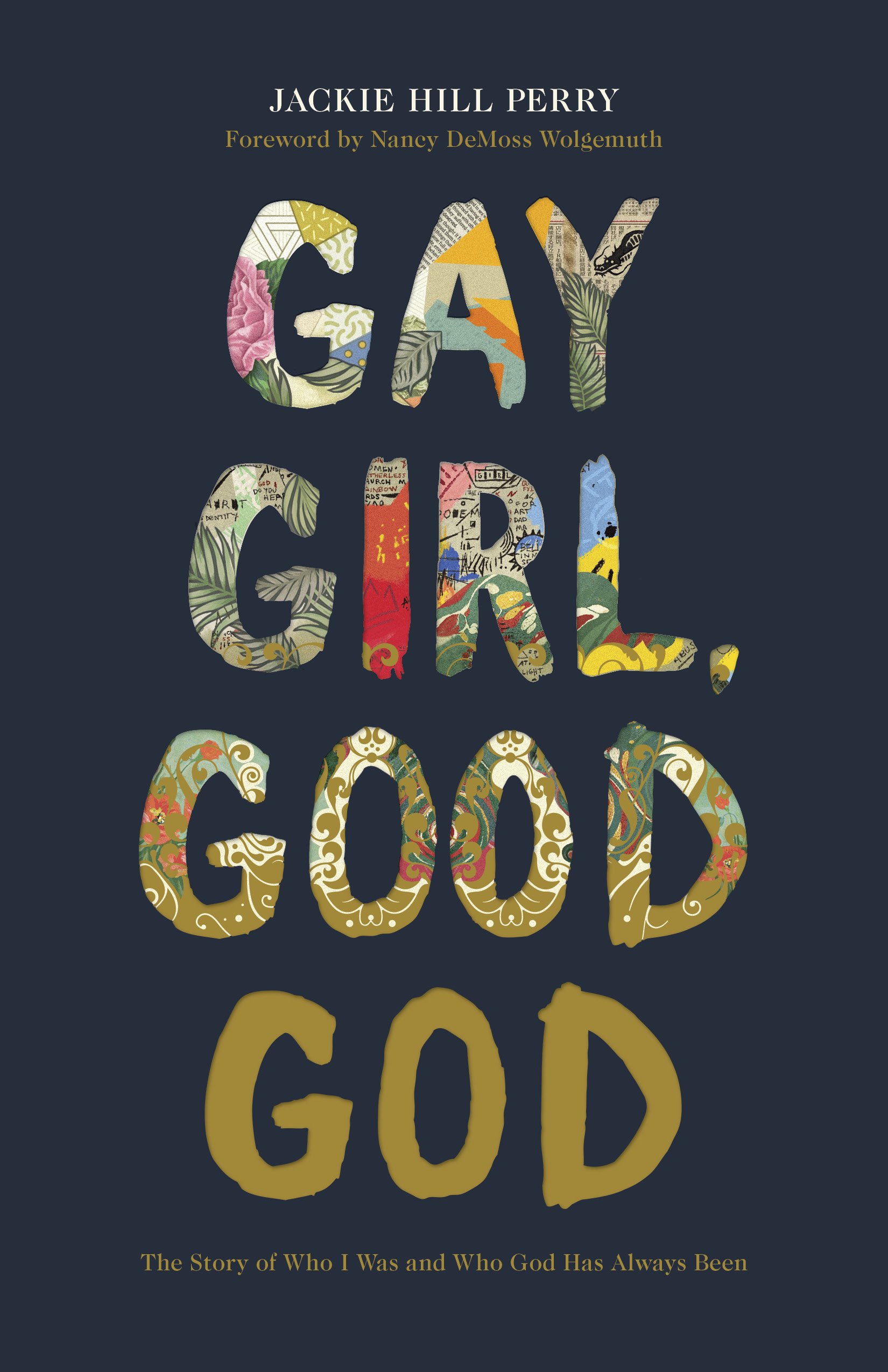
I saw them as I drove up our street. Both girls had beautiful, long hair and were about 16 years old. Then I noticed they were holding hands and sharing intimate embraces. Just friends? Maybe. But probably not.
This scene is common nowadays. Christians can’t ignore the subject of homosexuality, as it’s so interwoven with our culture. We need to know how to engage with it, following the example of our Lord Jesus who was “full of grace and truth” (John 1:14). And this requires us to pull up a chair and listen well to those who’ve walked its road.
Full of Worship
Jackie Hill Perry is one such woman. Growing up in a broken home, she had an absent father and suffered sexual abuse at the hands of a friend’s older brother. Her first book, Gay Girl, Good God: The Story of Who I Was, and Who God Has Always Been, recounts these circumstances that shaped her gay identity, but in Perry’s words, “Sexual abuse is not what made me gay. Nor did fatherlessness. They only exaggerated and helped direct the path for what was already there––which is sin” (37).
 Having struggled with same-sex attraction (SSA) for as long as she can remember, Perry recounts her story with humility, pointing us ultimately to her good God. From the beginning, she tells us that’s her agenda:
Having struggled with same-sex attraction (SSA) for as long as she can remember, Perry recounts her story with humility, pointing us ultimately to her good God. From the beginning, she tells us that’s her agenda:
Leaving this word-filled place with a developed understanding of me and a shallow revelation of God would make all of my efforts worthless. . . . This work is my worship unto God that, with prayer, I hope will leave you saying, “God is so good!” (3–4)
And it does that. I know Perry better, and have a better understanding of SSA, because of this book; but more importantly, I know our good God better. It caused me to revel in the miraculous––that God awakens the dead and opens blind eyes to the truth that’s in Jesus, that he’s gracious to relentlessly pursue those who’ve rejected him, and that he does the impossible in saving rebels.
I’m worshiping, and for that reason I’d say Perry did what she set out to do.
Full of Grace
Perry tells her story in a winsome way. She writes on a hot-button topic with compelling grace and compassion. The overarching tone of the work isn’t instruction, but invitation; not “I’ve arrived,” but “I’ve endured and enjoyed––taste and see!”
There’s also something unique and attractive about Perry’s poetic language. There were a few places I found it hard to follow, but this was the exception. Her writing is warm, inviting, and striking all at once:
- “Sin, when in the body, cannot not stay put. It’s not a guest that stays in one room, making sure not to disturb the others. It is a tenant that lives in everything and goes everywhere. It can bleed into every part, choking out anything holy” (20).
- “The thought of death was so matter-of-fact that it made an immediate mess of my mind. Like God had thrown himself inside of my world, in one immediate gesture, while I watched everything shred, fly up, and rain down all at once” (70).
- “Underneath my gown, white with a train, was a fight none of the guests could see. . . . They thought I was walking on the aisle runner the usher had rolled out before I entered the sanctuary. I knew it was water. I knew it was the impossible” (138).
Whether you struggle with SSA or not, and are a Christian or not, Perry’s writing will resonate. She captures the essence of the human heart by sharing her own, welcoming our questions and unveiling our deepest desires. Her tone, storytelling, and message make this a great book to hand to an unbelieving friend or someone from your church who has questions about or a personal struggle with SSA.
Full of Truth
What I love most about Gay Girl, Good God is how it unashamedly declares what’s true. Perry centers on and celebrates who God is and what he’s done. In writing memoir, we can be so focused on ourselves that we forget who wrote our story, and whose story ours is meant to reflect. We end up pointing people to us, rather than to the God who saves.
But Perry’s story points to Jesus Christ through and through, and without hesitation. Her practical theology is clear, robust, and will equip those who read.
My favorite chapter was “Same-Sex Attraction and Endurance,” where Perry writes about the lifelong battle SSA Christians face, and the sympathy and sufficiency of Jesus to face it: “The crucified life is the life set on enduring until the end when, once and for all, the cross is replaced with a crown” (169). She explores the endurance of Jesus unto death, a strength and encouragement for the weary: “If Jesus needed strength to endure for the sake of obedience to his Father, how much more do we?” (172). So much more. Praise God, he gives us what we need in himself.
Perhaps Perry’s most helpful theological point is this: “God isn’t calling gay people to be straight” (177). This isn’t the true gospel, but the “heterosexual gospel,” a misleading message that’s hurt many people and kept them from the truth and from knowing Jesus. While being clear that homosexuality behavior is sinful, Perry helpfully points out that God’s ultimate call on gay people is not straightness. Perry clarifies that God is calling all people—whether SSA or not—to a life of faith in and obedience to Christ. Her clarification was helpful for me as a believer who desires to build up the church and minister to those outside of Christ. I want to love people well—all people—by pointing them to the only true gospel of salvation.
At the close, Perry delivers a beautiful gospel presentation that all readers will do well to remember:
Our sexuality is not our soul, marriage is not heaven, and singleness is not hell. So may we all preach the news that is good for a reason. For it proclaims to the world that Jesus has come so that all sinners, same-sex attracted and opposite-sex attracted, can be forgiven of their sins to love God and enjoy him forever. (190)
[Post Credit: The Gospel Coalition | Image Credit: Jackie Hill Perry]